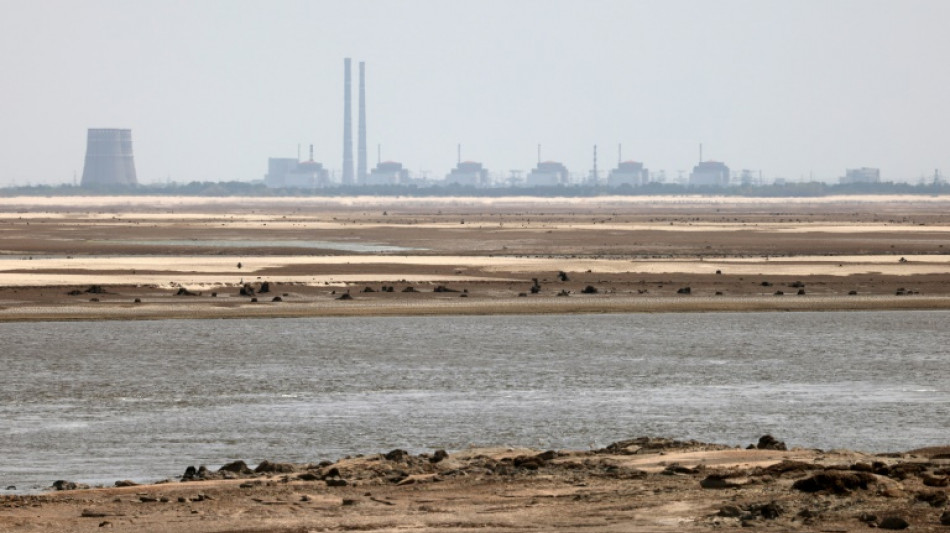
| SCS | 0.12% | 16.14 | $ | |
| CMSC | -0.39% | 23.707 | $ | |
| BCE | -0.65% | 25.355 | $ | |
| BCC | -0.9% | 81.01 | $ | |
| RIO | 0.4% | 93.28 | $ | |
| NGG | 0.32% | 84.58 | $ | |
| CMSD | 0.28% | 24.165 | $ | |
| JRI | -5.31% | 12.99 | $ | |
| GSK | -1.65% | 49.975 | $ | |
| RBGPF | 0% | 82.4 | $ | |
| RELX | -2.8% | 37.315 | $ | |
| AZN | -2.47% | 93.295 | $ | |
| RYCEF | -3.31% | 16.6 | $ | |
| BTI | -0.41% | 60.095 | $ | |
| BP | -0.04% | 37.605 | $ | |
| VOD | 0.53% | 14.577 | $ |

Zaporizhzhia nuclear plant off grid; Russia, Ukraine trade blame
The Russian-occupied Zaporizhzhia nuclear plant has been off the grid for four straight days, Ukraine and Russia said Saturday, blaming each other for attacks on power lines.
Though blackouts at Europe's biggest nuclear power plant are frequent, due to its proximity to the front line, this one is the longest so far, which experts warn raises the risk of incidents.
"As a result of Russian actions, the Zaporizhzhia NPP (Nuclear Power Plant) has been without power for the fourth day," Foreign Minister Andriy Sybiga said on X.
Russia said the power plant -- which it took control of in the first weeks of the war in 2022 -- has been receiving backup power supply since Tuesday, when it said Ukraine attacked the grid.
"From September 23, 2025, the power supply for the needs of the Zaporizhzhia nuclear power plant is provided by backup diesel generators," the Moscow-backed operator of the station said on Telegram.
There were "sufficient" reserves of diesel to operate "for an extended period", it added, without elaborating.
"Emergency diesel generators are considered a last line of defence to be used only in extreme circumstances," NGO Greenpeace Ukraine said.
The group claimed Moscow could use the crisis "to try and reconnect to the temporary Russian-occupied grid of Ukraine," to restart one of the reactors later.
Yuri Chernichuk, the Moscow-appointed director of the power station, said in January that Zaporizhzhia could potentially provide electricity to Russian-annexed Crimea, and the southern and eastern parts of Ukraine under Russia's control, the TASS news agency reported at the time.
Earlier this month, he told TASS that the process of integrating the power station to the Russian network was at its final stage.
- Safety concerns -
The head of the UN nuclear agency IAEA, Rafael Grossi, had been in Moscow this week for talks with President Vladimir Putin and Russia's nuclear agency Rosatom regarding safety at Zaporizhzhia.
The plant's six reactors, which before the war produced around a fifth of Ukraine's electricity, have been shut down since Moscow took over.
But the plant needs power to maintain cooling and safety systems, which prevent reactors from melting -- a danger that could set off a nuclear incident.
Since the start of the war, Zaporizhzhia has seen multiple safety threats, including frequent nearby shelling, repeated power cuts and staff shortages.
Located near the city of Enerhodar along the Dnieper river, the ZNPP is close to the front line.
Both Moscow and Kyiv have repeatedly accused the other of risking a potentially devastating nuclear disaster by attacking the site.
O.Alexiou--AN-GR



